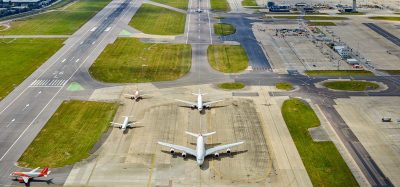AGS Airports and Google Cloud partner to transform aviation security
- Like
- Digg
- Del
- Tumblr
- VKontakte
- Buffer
- Love This
- Odnoklassniki
- Meneame
- Blogger
- Amazon
- Yahoo Mail
- Gmail
- AOL
- Newsvine
- HackerNews
- Evernote
- MySpace
- Mail.ru
- Viadeo
- Line
- Comments
- Yummly
- SMS
- Viber
- Telegram
- Subscribe
- Skype
- Facebook Messenger
- Kakao
- LiveJournal
- Yammer
- Edgar
- Fintel
- Mix
- Instapaper
- Copy Link
Posted: 17 December 2021 | International Airport Review | No comments yet
In collaboration with Pangiam and Google Cloud, AGS Airports Ltd has launched the new Project DARTMOUTH, which aims to transform airport security operations with modern technologies.


AGS Airports Ltd, in partnership with Pangiam and Google Cloud, has announced details of Project DARTMOUTH, an initiative to transform airport security operations by looking for threats concealed within baggage and other shipments at the airport.
Project DARTMOUTH will utilise Pangiam’s technologies alongside Google Cloud’s artificial intelligence (AI) and machine learning (ML) computer vision tools, such as their Vertex AI Platform. This technology will be tested within the security facilities of AGS Airport Ltd, owners and operators of Aberdeen, Glasgow, and Southampton Airports in the UK.
The collaboration means that Pangiam’s national security-grade technology and deep experience of managing aviation security threats will, for the first time, be boosted by Google Cloud’s industry-leading suite of AI technologies.
Project DARTMOUTH is intended to make air travel safer by integrating AI into airport baggage security and screening operations. The technology will in the first instance be focused on rapidly identifying potential threats in baggage, providing increased throughput at security checkpoints, addressing critical friction points in air travel, as well as supporting security teams. In later phases the technology will scale to help tackle other pressure points in security and wider airport operations.
AI and ML models will be trained to be able to detect prohibited items in real-time as bags pass through airport X-ray scanning equipment. It will also be used to spot anomalies and unusual patterns which could indicate a new or coordinated attempt to breach security, before alerting security staff to examine those items further.
Alexis Long, Chief Strategy Officer for Pangiam commented: “This technology marks a monumental step in bringing automation to aviation security and sets a new precedent for international security standards. First and foremost, the technology will deliver a better experience for the traveller, the airport, and governments. To help us achieve this, we have selected Google Cloud as our technology vendor of choice – a leader in artificial intelligence and cloud technologies.”
Mark Palmer, Head of EMEA Public Sector, Google Cloud said: “We are delighted to collaborate with Pangiam on this ground-breaking initiative to protect AGS’s network of passengers and customers. The power of artificial intelligence is boundless, and we look forward to improving the aviation industry at large.”
“Google Cloud and Pangiam are world leaders in the artificial intelligence field, and we are pleased to be working in partnership with both organisations on a cutting-edge project that could have a transformative effect on the security of our passengers and colleagues,” added Chief Operating Officer of AGS Airports Ltd, Mark Johnston.
“Aviation is an industry that never stands still, and as one of the UK’s biggest airport groups, we are continually looking at new ways to adapt and evolve. This is particularly the case when it comes to ensuring the safety and security of the millions of passengers we serve each year. We live in an ever-changing world with evolving threats and it is imperative that we continue to adapt and embrace new technologies that will enable frontline security teams to better deliver a seamless, safe, and secure customer experience,” added Johnston.
Related topics
Airport development, Artificial intelligence (AI), Baggage handling, Digital transformation, Passenger experience and seamless travel, Security, Terminal operations


















